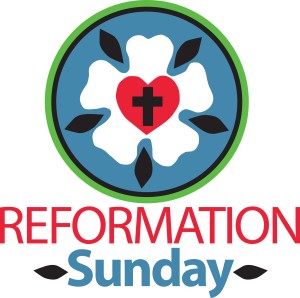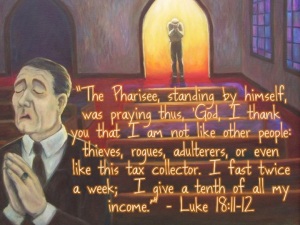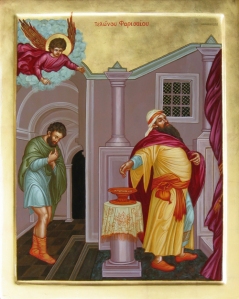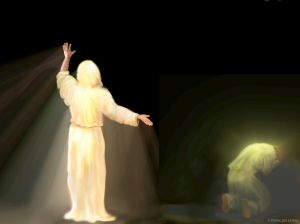“Joining the Parade”
Luke 19:28-40
March 20, 2016, First Presbyterian Church of Holt
 Throughout the past several weeks we have been preaching through what it means for us to build God’s beloved community, addressing sanctuary, vulnerability, self-awareness, brokenness and redemption, and shared life. At each step along our way I hope that it has been a chance to better understand what it means to be the beloved community and a challenge for each of us to fulfill that calling. Our word for today is accountability.
Throughout the past several weeks we have been preaching through what it means for us to build God’s beloved community, addressing sanctuary, vulnerability, self-awareness, brokenness and redemption, and shared life. At each step along our way I hope that it has been a chance to better understand what it means to be the beloved community and a challenge for each of us to fulfill that calling. Our word for today is accountability.
 Accountability is not exactly a fun word, not one that would be highlighted in some peppy promotional video trying to get someone to buy something. “Check it out, it’s fresh, new, and comes with a side of accountability!”
Accountability is not exactly a fun word, not one that would be highlighted in some peppy promotional video trying to get someone to buy something. “Check it out, it’s fresh, new, and comes with a side of accountability!”
When we hear the word accountability on the news it’s generally in reference to calling someone to task, an assignment of blame, a call for justice.  Just this past week I saw parts of Governor Snyder’s hearing about the Flint Water Crisis. The word accountability was used repeatedly to establish the lines of responsibility for this tragedy and assess what action should be taken going forward.
Just this past week I saw parts of Governor Snyder’s hearing about the Flint Water Crisis. The word accountability was used repeatedly to establish the lines of responsibility for this tragedy and assess what action should be taken going forward.
 At any point in the 24 hour news cycle we can see presidential candidates seeking to hold one another accountable for any number of actions they took part in, either explicitly or implicitly, turning the race into an overwhelming tide of vilification and hyperbole, through which no one escapes untarnished.
At any point in the 24 hour news cycle we can see presidential candidates seeking to hold one another accountable for any number of actions they took part in, either explicitly or implicitly, turning the race into an overwhelming tide of vilification and hyperbole, through which no one escapes untarnished.
 In our denomination, the PCUSA, we have a specific section in our constitution called the Rules of Discipline, whereby we seek to hold our members and leaders accountable to their actions.
In our denomination, the PCUSA, we have a specific section in our constitution called the Rules of Discipline, whereby we seek to hold our members and leaders accountable to their actions.
 Accountability is foundational to a functioning community of any kind, from governments to families to classrooms to churches. It serves as a covenant between all of us, enabling justice, yes, but also helping us to uphold one another into being our best selves.
Accountability is foundational to a functioning community of any kind, from governments to families to classrooms to churches. It serves as a covenant between all of us, enabling justice, yes, but also helping us to uphold one another into being our best selves.
 Our text today serves as the opening to a world changing week, when accountability was demanded of temple sellers, disregarded by Judas, denied by Peter, deferred by Pilate, and wrongly dealt to Jesus.
Our text today serves as the opening to a world changing week, when accountability was demanded of temple sellers, disregarded by Judas, denied by Peter, deferred by Pilate, and wrongly dealt to Jesus.
 But before we get to all of that, we find ourselves in the midst of Jesus and his disciples, setting out for a parade. While joyfilled, this parade is far from tame, rather it is a revolutionary act.
But before we get to all of that, we find ourselves in the midst of Jesus and his disciples, setting out for a parade. While joyfilled, this parade is far from tame, rather it is a revolutionary act.
At this time in Jerusalem parades were a way for Romans to demonstrate their physical and political might, especially during Passover when there were a lot more Jews in the city. It was an act of sedition to be holding their own parade, offering their devotion to a rabble rousing Jew who they claimed as king.
 Not too long after this particular gathering, about 111 CE, the emperor Trajan writes in a letter to Pliny the Younger, saying, “When people gather together for a common purpose — whatever name we may give them and whatever function we may assign them — they soon become political groups.”
Not too long after this particular gathering, about 111 CE, the emperor Trajan writes in a letter to Pliny the Younger, saying, “When people gather together for a common purpose — whatever name we may give them and whatever function we may assign them — they soon become political groups.”
 Indeed this was the case that day, as their support of Jesus was more than just that of a fan in a crowd. They were placing their trust in who Jesus was and the change that Jesus represented. In both Matthew and Mark’s accounts of this story, the crowd shouts, “Hosanna,” meaning “save us.” Shouted over and over, it was both a question and a plea. Can you save us? Will you save us? Why haven’t you yet saved us? They wanted revolution and were determined to hold Jesus accountable to making that happen.
Indeed this was the case that day, as their support of Jesus was more than just that of a fan in a crowd. They were placing their trust in who Jesus was and the change that Jesus represented. In both Matthew and Mark’s accounts of this story, the crowd shouts, “Hosanna,” meaning “save us.” Shouted over and over, it was both a question and a plea. Can you save us? Will you save us? Why haven’t you yet saved us? They wanted revolution and were determined to hold Jesus accountable to making that happen.
While they were busy holding Jesus accountable, their own accountability would all too quickly be disregarded, as the shouts of “Hosanna” at the beginning of the week turned to “Crucify him,” by the end of the week.
 Every time I read through these texts I struggle with that shift. What is it in them that makes them so fickle, so changeable? Can hate really become so loud and be so unchallenged? Why isn’t anyone stopping this?
Every time I read through these texts I struggle with that shift. What is it in them that makes them so fickle, so changeable? Can hate really become so loud and be so unchallenged? Why isn’t anyone stopping this?
 I hesitate to say this, but it makes me think of our current political landscape, where all too often the volume of the voice bears much more weight that the content of the words and the more inflammatory the rhetoric is the more broadly it is shared not only on the news, but also in personal social media accounts.
I hesitate to say this, but it makes me think of our current political landscape, where all too often the volume of the voice bears much more weight that the content of the words and the more inflammatory the rhetoric is the more broadly it is shared not only on the news, but also in personal social media accounts.
 Jesus says to the Pharisees, “If these were silent, the stones would shout out.” Why do we fall silent in the face of opposition? Why are we so hesitant to oppose the status quo? To speak justice? To hold one another accountable to the gospel we profess? Or perhaps even more challenging, how are we like those Pharisees who want that Jesus loving mob to just be quiet?
Jesus says to the Pharisees, “If these were silent, the stones would shout out.” Why do we fall silent in the face of opposition? Why are we so hesitant to oppose the status quo? To speak justice? To hold one another accountable to the gospel we profess? Or perhaps even more challenging, how are we like those Pharisees who want that Jesus loving mob to just be quiet?
 The value we place on comfort cannot be overstated here. Change is hard, especially when you are in a place of power and that change would mean conceding some of that power, even when it expands the reaches of justice in our world.
The value we place on comfort cannot be overstated here. Change is hard, especially when you are in a place of power and that change would mean conceding some of that power, even when it expands the reaches of justice in our world.
It’s more comfortable to join our voices with the parade around us than to speak out against them, even when the shouts become “crucify him.” To oppose such a mob would be to risk making ourselves the target of their shouting, it’s better to blend in, right? It’s much easier to be nice than it is to be honest.
Will our silence keep us safe? It might, for a while at least. But lauding civility for the sake of civility over the justice that the gospel demands is to disavow the accountability merited by being in community with one another.
 Marilyn Chandler McEntyre spoke at our most recent presbytery meeting about the importance of language, highlighting many of her theses from her book, “Caring for Words in a Culture of Lies.” In it she writes “An appropriate response to the competing claims of public voices is to take these obligations quite personally. We have been ‘called by name’ – not every one of us to public speaking, political activism in streets and on telephones, or investigative journalism, but all of us seek truth and follow after it, to do justice, to love mercy, and to walk humbly with God.” continuing she writes, “How much information is sufficient to allow me to take a position? To support or resist a policy that has implications for other human beings? Whose is the burden of proof? What is my burden?”
Marilyn Chandler McEntyre spoke at our most recent presbytery meeting about the importance of language, highlighting many of her theses from her book, “Caring for Words in a Culture of Lies.” In it she writes “An appropriate response to the competing claims of public voices is to take these obligations quite personally. We have been ‘called by name’ – not every one of us to public speaking, political activism in streets and on telephones, or investigative journalism, but all of us seek truth and follow after it, to do justice, to love mercy, and to walk humbly with God.” continuing she writes, “How much information is sufficient to allow me to take a position? To support or resist a policy that has implications for other human beings? Whose is the burden of proof? What is my burden?”
 What we say and what we left unsaid both matter. As we make our way into this Holy Week, may we be ever mindful of the accountability our Gospel demands. Amen.
What we say and what we left unsaid both matter. As we make our way into this Holy Week, may we be ever mindful of the accountability our Gospel demands. Amen.











































 ny guesses to who I might be talking about?
ny guesses to who I might be talking about? Angels announced both of their births. An angel came to Elizabeth, Mary’s cousin, and told her that even in her old age she would have a baby. An angel came to Mary and told her that even though she was a virgin she would have a baby. Surprises all around.
Angels announced both of their births. An angel came to Elizabeth, Mary’s cousin, and told her that even in her old age she would have a baby. An angel came to Mary and told her that even though she was a virgin she would have a baby. Surprises all around.
 John is often depicted like this picture here. Here in this otherwise formal portrait, John is disheveled, a wild man who lived out in the wilderness. He was described wearing a leather belt and a tunic of camel hair, living off locusts and wild honey. His message was not for those who were concerned with appearances, but for those concerned with God’s work throughout our lives and into eternity.
John is often depicted like this picture here. Here in this otherwise formal portrait, John is disheveled, a wild man who lived out in the wilderness. He was described wearing a leather belt and a tunic of camel hair, living off locusts and wild honey. His message was not for those who were concerned with appearances, but for those concerned with God’s work throughout our lives and into eternity. “What should we do?” asked the crowds.
“What should we do?” asked the crowds.
 John lived his life rejoicing in the company of Jesus Christ. As we are already in the midst of this season of giving, this is an important example to remember. In this Christmas season we will both give and receive gifts, but we needn’t get caught up so much in the gifts themselves, but rather on the relationships that surround them. When we give let us remember John’s command for sharing, fairness, and consideration, but also the simplicity and unconditional nature of John’s joy in God’s presence.
John lived his life rejoicing in the company of Jesus Christ. As we are already in the midst of this season of giving, this is an important example to remember. In this Christmas season we will both give and receive gifts, but we needn’t get caught up so much in the gifts themselves, but rather on the relationships that surround them. When we give let us remember John’s command for sharing, fairness, and consideration, but also the simplicity and unconditional nature of John’s joy in God’s presence. My sister and I were talking the other day about some gifts we have given and received over the years. No matter what the material gift was that was received, the ones that had the most impact were those that reflected a genuine, unsolicited knowledge of the recipient. These were gifts that required listening, required paying attention, required being in relationship. The greatest gift we can receive was the gift of being known.
My sister and I were talking the other day about some gifts we have given and received over the years. No matter what the material gift was that was received, the ones that had the most impact were those that reflected a genuine, unsolicited knowledge of the recipient. These were gifts that required listening, required paying attention, required being in relationship. The greatest gift we can receive was the gift of being known. With this in mind, the gifts of the wise men initially seem quite strange. They are coming to celebrate the birth of a baby and bring gold, frankincense, and myrrh. Seems like quite the strange baby shower presents. Surely these were not gifts that Mary and Joseph would’ve registered for at Babies R Us. But the gifts are also right on track because they point to a knowledge of who this little baby Jesus will become. These are gifts of knowing Jesus’ future. The gold was the symbol for the king; frankincense for the priesthood, and myrrh for healing. These gifts, then, point to a greater gift: the most important gift of this season that cannot be wrapped up in a box or written on a check.The most important gift is the gift of Jesus’ life, which is offered at his birth. Even as a baby, these gifts tell us that Christ is the great king, the priest of all priests, who came to heal this broken world.
With this in mind, the gifts of the wise men initially seem quite strange. They are coming to celebrate the birth of a baby and bring gold, frankincense, and myrrh. Seems like quite the strange baby shower presents. Surely these were not gifts that Mary and Joseph would’ve registered for at Babies R Us. But the gifts are also right on track because they point to a knowledge of who this little baby Jesus will become. These are gifts of knowing Jesus’ future. The gold was the symbol for the king; frankincense for the priesthood, and myrrh for healing. These gifts, then, point to a greater gift: the most important gift of this season that cannot be wrapped up in a box or written on a check.The most important gift is the gift of Jesus’ life, which is offered at his birth. Even as a baby, these gifts tell us that Christ is the great king, the priest of all priests, who came to heal this broken world. 
 But let us not let our leaping with joy in Christ’s presence be contained to the wombs of our world, the places where we are comfortable, secure, and nourished. Let us leap throughout out lives, sharing the love of Christ. May we, like John, be a witness to the light of Christ, giving the gift of Christ’s love into this world. Amen.
But let us not let our leaping with joy in Christ’s presence be contained to the wombs of our world, the places where we are comfortable, secure, and nourished. Let us leap throughout out lives, sharing the love of Christ. May we, like John, be a witness to the light of Christ, giving the gift of Christ’s love into this world. Amen.